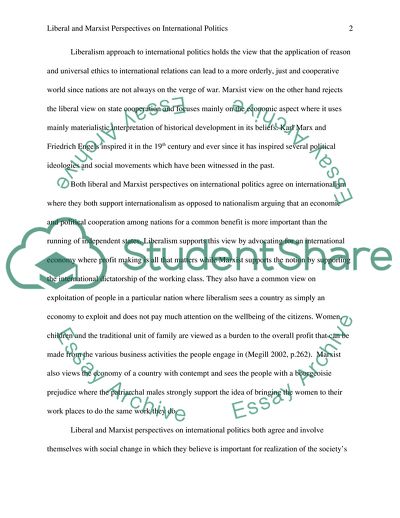Cite this document
(Liberal and Marxist Perspectives on International Politics Assignment, n.d.)
Liberal and Marxist Perspectives on International Politics Assignment. https://studentshare.org/philosophy/1850971-discuss-the-similarities-between-the-liberal-and-marxist-perpectives-on-international-politics
Liberal and Marxist Perspectives on International Politics Assignment. https://studentshare.org/philosophy/1850971-discuss-the-similarities-between-the-liberal-and-marxist-perpectives-on-international-politics
(Liberal and Marxist Perspectives on International Politics Assignment)
Liberal and Marxist Perspectives on International Politics Assignment. https://studentshare.org/philosophy/1850971-discuss-the-similarities-between-the-liberal-and-marxist-perpectives-on-international-politics.
Liberal and Marxist Perspectives on International Politics Assignment. https://studentshare.org/philosophy/1850971-discuss-the-similarities-between-the-liberal-and-marxist-perpectives-on-international-politics.
“Liberal and Marxist Perspectives on International Politics Assignment”. https://studentshare.org/philosophy/1850971-discuss-the-similarities-between-the-liberal-and-marxist-perpectives-on-international-politics.


